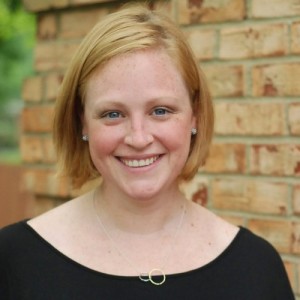 Last week SPM member Erin Moore (see her previous posts) handled an opportunity in Washington really effectively, and she got heard. Here’s a cross-post of her news, with permission, from her blog 66 Roses.
Last week SPM member Erin Moore (see her previous posts) handled an opportunity in Washington really effectively, and she got heard. Here’s a cross-post of her news, with permission, from her blog 66 Roses.
______________
Last week I traveled to Washington, DC for two meetings. One was on the important role that patients & caregivers plan in understanding medication adherence, and the other was on patients and caregivers being involved as disruptive innovators in healthcare; both topics very close to my heart. While I was reimbursed for my travel expenses (less alcohol), I was not compensated for my time. I struggle with this. Part of me gets angry because my time is valuable, to a lot of people, and I want these folks to see and appreciate that. The other part of me wants to be heard, no matter the compensation.
During one of the meetings, I participated as a panelist and shared on the role that I play on our healthcare team. I view myself as a partner, and I work with different tools that our doctor has recommended (medications, medical devices) and with tools that I’ve found or created to manage Drew’s health as best I can. I think that our message was well received, that by partnering in care, meeting patients where they are rather than where you want them to be, has meaning. And patients who are meaningfully engaged in their own care have a better chance at a good outcomes.
One of the final questions that the audience asked us was what ideas we have for getting more people like us involved at every level, and I countered with a question. I asked this audience, made up of doctors and other clinicians, pharmacists, admirals and even representatives from the Surgeon Generals office, how many of them had to use vacation time to attend the meeting today. No one raised their hand. Patients and caregivers are asked to give up time in their already full and complicated schedules to help out these healthcare professionals. Meaningful engagement would be asking patients to be a part of the team, recognizing the value that they bring to the table, and showing them that you appreciate them through respect and compensation.
Last week, after scanning receipts and filling out forms for reimbursement, I got the most amazing email:
“I wanted to reach out to you to let you know that your comments regarding your participation at our meeting being not part of your ‘job’ did not fall on deaf ears. In addition to your time at the meeting, you also spent a lot of time planning prior to the meeting and working with us after the meeting to work through your expense reimbursement. Our team would like to compensate you for your time. We will include an honorarium for you for your time with your expense reimbursement.
In addition, one of our Co-Investigators put forth a very thoughtful suggestion to propose to the Steering Committee, a policy to compensate patients/patient advocates/caregivers (not paid by an organization) when they participate in one of our events. If the Steering Committee agrees to this policy change, our program as a whole will not overlook compensating important contributions of patients and caregivers at future meetings.
To be compensated for my time is great. For my message to be heard, for others to recognize and appreciate the value of patients and caregivers sitting at the table for these critical discussions that will be fundamental to the changing culture of healthcare, that is an amazing feeling. I have the utmost respect for this organization, and hope that their actions will be seen and replicated by others.
____________
I see this as an important turning point in the history of our movement. My personal thanks to the hosts of the event for offering financial support to the patient contributors. Here’s hoping the proposed policy change becomes reality – and congratulations to Erin for finding an effective way to voice the patient’s perspective.






Brava, Erin, for making the case in a way that could be heard.
Agree that this seems to be a turning (or perhaps a tipping)point. For years, pharma and other sectors of the healthcare industry have provided honoraria for “KOLs” (Key Opinion Leaders). I want to believe that patients and caregivers are finally being perceived as key opinion leaders, providing knowledge that no survey, no matter how finely crafted, will reveal.
Such a fantastic outcome, Erin! Somebody was listening, indeed – but more importantly, somebody actually took action to make things right, not only for you personally but for all future patients invited to participate in such meetings.
Carly Medosch wrote an interesting post on this topic in 2012: http://blog.chronicarly.com/should-patients-be-paid/
Thank you for the great comments, it was a wonderful feeling! I must also give major kudos to Emily Kramer-Golinkoff (@emilykg1), CF patient and advocate, who participated in this panel as well and was the only one to raise her hand when I asked how many people had to use vacation time to be here.
> the only one to raise her hand when I asked
> how many people had to use vacation time to be here.
[sound of breath being taken away]
I bet THAT had impact! Perfect!
Emily, I’m so glad you thought to do that!
And obviously, what all the patients contributed as seen as valuable. So glad for your work!
Also, check out Emily’s post on the conference http://goo.gl/JfY4Zt